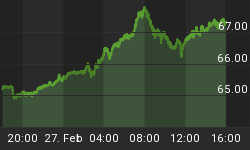It is an unfortunate truth that Keynesian counterfeiters with their Kamikaze monetary and fiscal policies have taken over the developed world. Politicians and central banks in the United States and Europe have decided to cement firmly in place their addictions to debt, inflation and artificially produced low interest rates. But Japan has now leapfrogged into the lead of those nations that believe prosperity can be brought about by loading up on government debt and increasing the number of zeros being printed by their central bank.
Shinzo Abe and the Liberal Democratic Party swept into power in mid-December by promising to boost inflation and destroy the value of the Yen. The new Prime Minister is trying to usurp the independence of the Band of Japan (BOJ) by dictating that the central bank provide an inflation target of at least 2% and also force them to expand their government bond-buying program. The reason for this is clear; Japan's debt has ballooned to over $12 trillion and is now 237% of their GDP.
So, what's a government and central bank to do? The answer of course is enacting yet another new fiscal stimulus package that will be monetized by the BOJ. Japan's central bank has already been buying corporate and government bonds in the scores of trillions of Yen. Then its board met on December 20th and decided to expand its program for the third time in four months. This additional 10 trillion Yen brings the current total of BOJ debt monetization to 101 trillion Yen! Of course, to "help" push things along on the spending side, the government is considering another 10 trillion Yen stimulus program.
The government believes their economic troubles emanate from stable prices and a currency that is too strong. Therefore, an all-out effort is underway to crumble the currency and boost inflation. This would be great news for the Japanese economy if it all hadn't been tried before and proven to fail miserably. In fact, the Yen has already lost 11% of its value in the past twelve months and is at its lowest level against the dollar since August of 2010. But that hasn't helped boost exports or manufacturing at all. Industrial production dropped 1.7% in November, which was the worst reading since the earthquake in March of 2011. That's because domestic prices rise in commensurate fashion with the decline of the currency. Hence, there was no benefit to manufacturing and exports due to a drop in the value of the Yen.
Japan has adopted the Keynesian mantra of, "The economy suffers from a lack of demand and government can and must supplant the private sector." However, the problem is that demand must be based on the prior production of goods and services, which allows an individual, corporation or government the ability to use their production for consumption. It cannot be generated artificially by printing money beforehand. If genuine growth and prosperity could come from government-induced demand, Cuba would be a global economic giant.
When a government perpetually tries to create demand by disseminating money that is printed by a central bank; all you get is a falling currency, faltering GDP, soaring debt levels and inflation--and eventually rising interest rates as well. Japan illustrates this point perfectly. Indeed, Japanese Government Bond yields have increased sharply in the last month in response to Mr. Abe's love affair with inflation. That could lead to disaster in short order as the country's debt service payments soar.
As stated before, one consequence of destroying your currency is to make those things priced in Yen rise in price. That also applies to equities. The Nikkei Dow closed up 23% on the year and has continued its increase so far in 2013. That's great for those fortunate to own hard assets, but pernicious for those in the middle class that must spend a greater portion of their income on food and energy. The result is a faltering middle class and an economy that is plagued by intractable debt and an unstable currency.
The failure of Japan to allow bankrupt institutions to fail, to let asset prices fall, to balance their budget and to embrace a strengthening Yen has helped turn their lost decade into the lost quarter century. And it is now etched in stone that the entire nation now faces a currency and bond market crisis that is not too far in the future.















